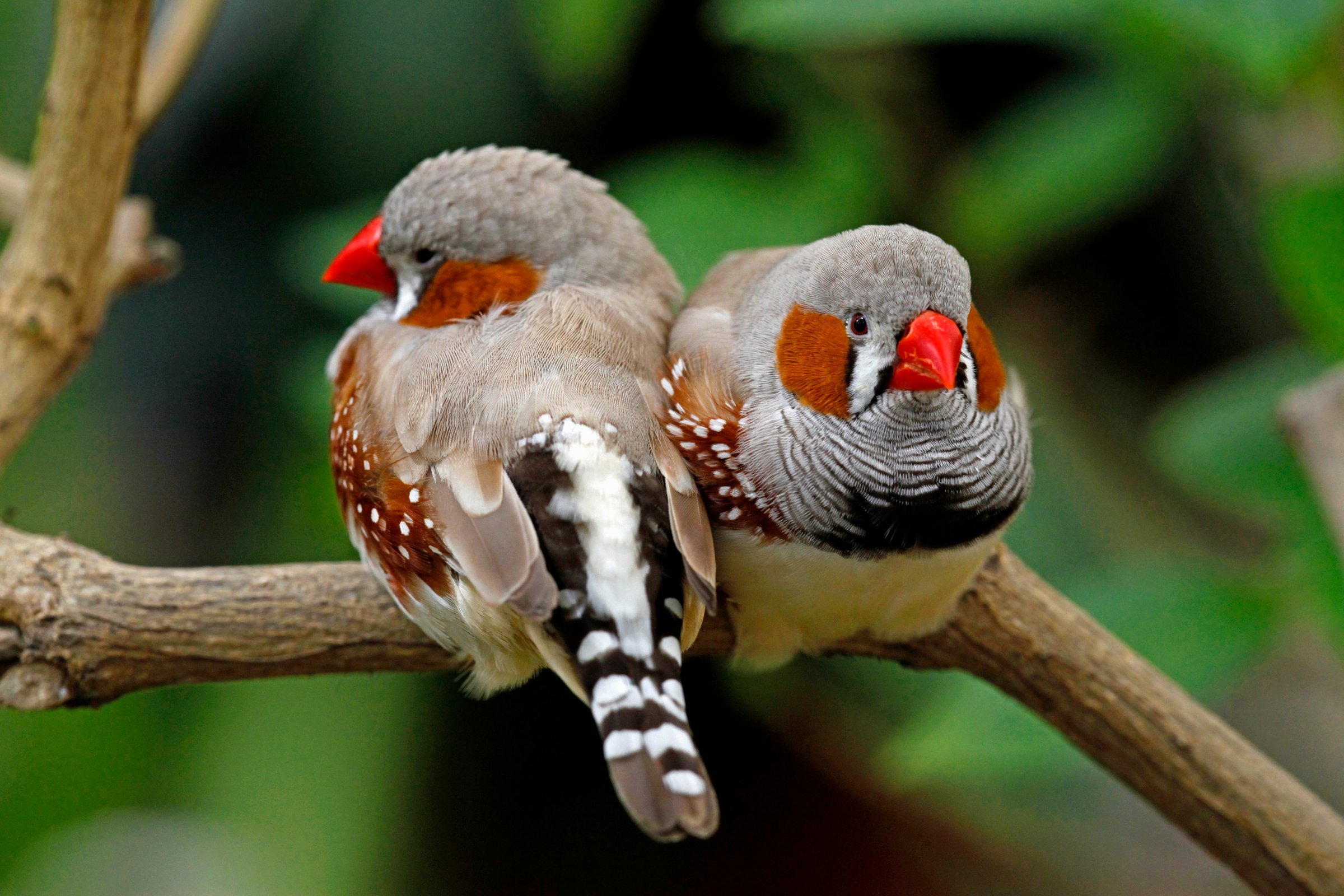
Most of us have spent a considerable part of our life looking for true love—our perfect match. The search for an ideal partner isn’t exclusive to humans, many animals do it too. But from an evolutionary perspective it is not actually clear why we couple up at all. Why spend time and effort on being fuzzy when we could be reproducing?
Now a new study in birds has shed some light on this long-standing problem, suggesting there are actually evolutionary benefits from finding the ideal mate. The findings may apply to humans, too.
It’s complicated
So how do you know who your perfect partner is? The answer seem to change from species to species. Because females usually invest more in reproduction than males, they tend to be the choosier sex. Often, there is broad agreement on which males are the most desirable. These males either provide superior resources, such as really good territory, or superior genes that guarantee healthier offspring.
In humans too, there are some individuals who are generally agreed upon to be extremely attractive. This kind of agreement, however, is not necessarily a big factor when it comes to choosing a long-term partner. In fact when it comes to finding “the one,” the right mate seems to differ from person to person.
Although humans are quite rare among mammals in maintaining long-term (or even life-long) relationships, they share this trait with many bird species. One such species is the zebra finch, a common bird often used in research. Like people, zebra finches pair up for the long term, and each bird has its own preference.
The new study, published in the journal PLoS Biology, investigated why this might be. The researchers reasoned that if animals put so much effort into finding the perfect partner, then there must be a benefit of reproducing with that partner rather than another one, or many other ones.
To find out, they let 160 birds pick their own partners in a large communal enclosure. After the birds had paired up, they were put in smaller cages for two months. Half of the couples were housed with their own chosen partner, while the other half was housed with someone else’s choice of partner.
By using birds that had previously been chosen by another bird, they controlled for the possible confound of partnering up birds with “objectively” inferior mates. Still, applying Stephen Stills’ “Love the one you’re with” principle, these birds eventually formed pair bonds as well. Finally, all of the now-established pairs were put into larger aviaries again (six pairs in each cage) to reproduce.
The outcome was dramatic. Birds that reproduced with their own choice of partner had 37% more chicks that survived to adulthood than birds that mated with a partner not of their choice. This showed that some form of partner compatibility is important for these birds’ reproductive success.
Domestic harmony
But why were the “forced” pairs less successful at reproduction? There are two possibilities. One is that the partners were genetically less compatible. In humans, being genetically similar may mean a good match (though it has also been reported that humans are more attracted to the smell of sweaty t-shirts worn by people who have genetically different immune systems).
The other possibility is that the partners were less compatible behaviourally (for example in their temperaments).
And the authors of the study had previously shown that embryo viability of zebra finches is down to the genetic make-up of the embryo and therefore the genetic compatibility of the biological parents, while survival after hatching was purely due to parental care.
Again, their results in the new study were clear: whereas embryo viability did not differ between the two groups, more young died after hatching in the “forced” group. They were even able to show that “forced” pairs were less lovey-dovey with each other – females in the “forced” group were less attentive to their mate’s courtship, while the males spent less time at the nest and more time courting other females than in pairs who chose their own partners.
But can zebra finches tell us anything about the evolution of mate choice in our own species? Well, despite the similarities, we are not zebra finches. Human mating systems vary across cultures and time. Nevertheless, we have evolved emotions like “attraction” and “love”, which serve the function of finding and pair bonding with a particular individual.
And, just like the zebra finches, different people are attracted to, and compatible with, different partners. It is therefore likely that our own mate choice behaviours, including “dating” and “breaking up”, are part of an evolved strategy to find a compatible partner, who would (at least in evolutionary history) improve our reproductive success. So if you haven’t found “the one” yet, don’t despair. Evolutionary biology suggests it’s worth the time and effort spent searching.
This article originally appeared on The Conversation
More Must-Reads from TIME
- Donald Trump Is TIME's 2024 Person of the Year
- Why We Chose Trump as Person of the Year
- Is Intermittent Fasting Good or Bad for You?
- The 100 Must-Read Books of 2024
- The 20 Best Christmas TV Episodes
- Column: If Optimism Feels Ridiculous Now, Try Hope
- The Future of Climate Action Is Trade Policy
- Merle Bombardieri Is Helping People Make the Baby Decision
Contact us at letters@time.com